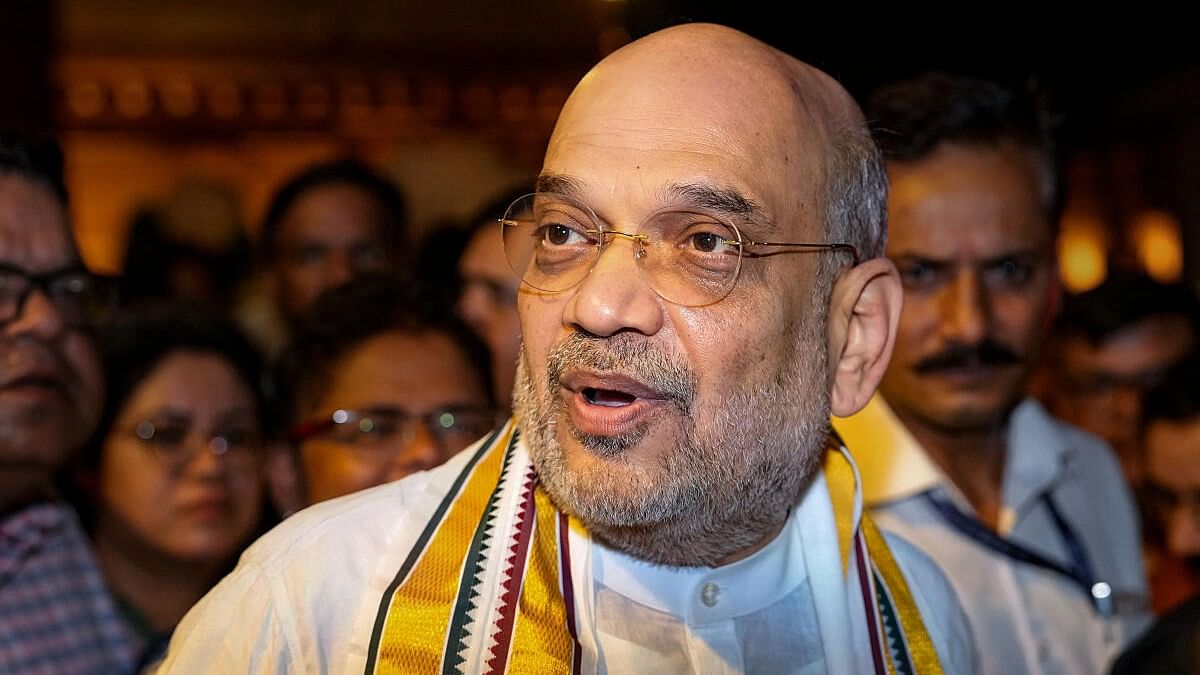
Home Minister Amit Shah introduced the 3 bills in Lok Sabha that seek to replace the IPC, CrPC and Indian Evidence Act.
Credit: PTI File Photo
The Indian Penal Code (IPC), 1860, was a crucial piece of legislation for India. Enacted as a comprehensive code on crime and punishment, the IPC brought uniformity and consistency in the application of criminal law in India. However, it was also designed to serve as a tool for ‘civilising’ the native Indian population as per Victorian standards of morality.
Drawing from 19th century Britain’s value system, the IPC criminalised behaviour deemed ‘deviant’ by the English. This Victorian moral imprint was starkly visible in provisions that criminalised homosexuality, adultery, enticing a married woman, and even the marital rape exemption. These provisions not only reflect the imposition of conservative and repressive values but also perpetuated cultural imperialism for over a century in India.
Through the Bharatiya Nyaya Sanhita Bill (BNS), 2023, the government said it wanted to shun the colonial vestiges and modernise India’s criminal law. This necessitated the removal of the Victorian morality that pervades the IPC. However, the government failed to seize the opportunity to truly decolonise India’s criminal law and, with it, our mindset that is still rooted in deeply problematic patriarchal notions, disregarding the autonomy and dignity of women.
While the BNS has dropped the provision criminalising adultery (Section 497 of the IPC), giving effect to the Supreme Court’s decision in Joseph Shine v. Union of India (2019), it continues to retain the provision on enticing a married woman (Clause 83) and the marital rape exception (Clause 63).
Enticing a married woman
Incorporated in the IPC to protect the interests of husbands and bolster their control over their wives, Section 498 of the IPC criminalised enticing or taking away a married woman with the intention of having sexual intercourse. Since women were perceived as the property of their husbands, any form of sexual transgression with a wife was considered an infringement of the husband’s proprietary right over her. Interestingly, since the provision was designed to protect the rights of the husband and not the wife, the consent or willingness of the wife to be part of the ‘illicit’ act was deemed to be immaterial.
In its application on the ground, courts in India perpetuated this problematic conception and continued to deny women sexual autonomy. The Supreme Court, in Alamgir v. State of Bihar (1959), held that since the object of the Section is to protect the rights of the husband, the willingness or consent of the wife to have illicit sexual intercourse would be no defence. Similarly, in Arun Shrawan Patil v. State of Maharashtra (2021), the Maharashtra High Court underlined that the idea is to prevent the deprivation of the husband of his proper custody and control of the wife and, therefore, the consent of the wife for this deprivation of custody was immaterial to establish the offence of enticement.
The provision relies on antiquated gender stereotypes that deem women to be passive beings with no sexual autonomy who can be easily ‘enticed’ or ‘deceived’, and men to be predators. This understanding is not only outdated and patriarchal but is also an affront to the rights and liberties of women.
The continued criminalisation of enticing away a married woman is puzzling, especially considering the Supreme Court’s decision to strike down the offence of adultery. The offence of adultery was struck down for its discriminatory treatment of women as mere chattel, a reasoning that logically extends to the provision concerning the enticement of a married woman. Even with the benefit of the SC decision, the BNS replicates the provision on enticement of a married woman.
Marital rape exception
The BNS retains the marital rape exception from the IPC. Entrenched in the belief that husbands have ‘ownership’ over their wives post-marriage, this exception to the offence of rape grants immunity to husbands to have non-consensual sexual intercourse with their wives. The law thus assumes that there is ‘consent’ for every sexual act within a marriage and, therefore, fails to provide a recourse to victims. This is even when marital rape has been recognised as cruelty and a ground for divorce.
The provision has long been defended by citing social norms, the potential for misuse and, more commonly, to ensure stability to the ‘sacred’ institution of marriage. All of this at the cost of a woman’s dignity, bodily integrity, and her right to sexual autonomy.
Though consent is central to the concept of rape, making it irrelevant in marital contexts is a perplexing inconsistency that perpetuates entrenched discriminatory practices against women. Justice Shankardhar, in RIT Foundation v. Union of India (2022), underlined that the marital rape exception has contributed to diminishing the freedom won by human beings from slavery and the struggle that they
experienced in removing discrimination on account of colour, creed, ethnicity
and sex.
Retention of this exception in the BNS is also in disregard of the Supreme Court’s careful curation of the right against discrimination and the right to privacy, particularly in the context of sexual autonomy and gender-based discrimination. Removal of these discriminatory
provisions and vestiges of colonial India would go a long way in modernising Indian criminal law and making them gender-just. We must hope that what the government’s draft BNS has failed to do, parliament will.
(Ayushi Sharma and Naveed Mehmood Ahmad are with the Vidhi Centre for Legal Policy, New Delhi)
(This is the seventh article in a DH-Vidhi Centre for Legal Policy series on the proposed new criminal law codes)